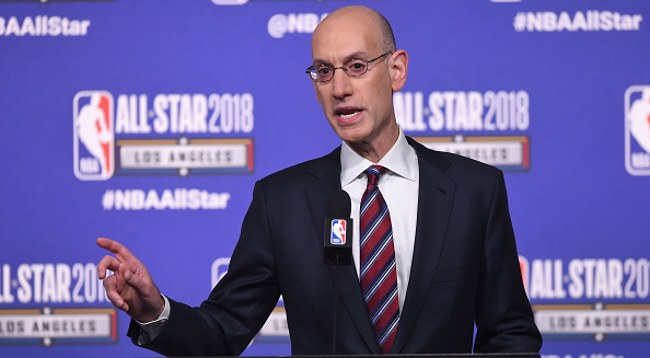
Adam Silver sat down with The Ringer’s Bill Simmons for a wide-ranging chat about the state of the NBA at the annual MIT Sloan Sports Analytics Conference, and was surprisingly candid about the biggest challenges his league faces in 2019. Right off the bat, Silver made a somewhat monumental admission: the league’s preference for shorter player contracts has ended up backfiring.
The initial idea made sense: shorter contracts would give players who were outperforming their current deals the ability to renegotiate sooner to more closely match their current value, while also giving teams the ability to stay away from those massive, long deals for star players who will fail to meet that monetary value in the back end of said contracts. But the “unintended consequences” of shorter contracts, as Silver put it, has been the ability of star players like Anthony Davis to control their destinies more than ever, and cluster themselves amongst a select group of teams.
“We tried (in the 2011 collective bargaining agreement), to create a closer tie between pay and performance, ” Silver said. “And the unintended consequences maybe are such that we made a mistake. Part of the issue is our own doing. We wanted to have shorter contracts.”
Those shorter contracts have created more player movement than ever, something that will inevitably continue this summer when players like Davis, Kyrie Irving, Kevin Durant, Jimmy Butler and others could likely end up on the move once again. As Brian Windhorst points out in his piece for ESPN today, Silver’s nod to this issue is no small thing. How the NBA goes about fixing it is another question entirely, but admitting there’s a problem in the first place is a pretty big step.
Players being empowered is something that should be celebrated. But how much power they’re able to wield, exactly, is something Silver and the league office must continue to figure out.






